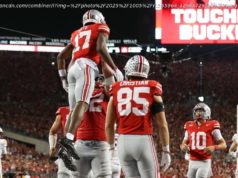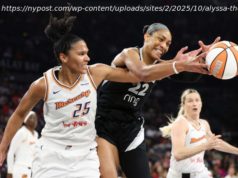A roundtable explores what is particular about reporting and preventing dating violence and sexual assault at HBCUs.
Students at several prominent historically black colleges and universities (HBCUs), have demanded that school administrators address sexual assault more vigorously. Last year, student protests at Morehouse College, Spelman College, Hampton University, and Howard University focused on inadequacies in the way sexual assault and rape cases are handled.
Two current students at Historically Black Colleges and Universities and two alums join our roundtable discussion to explore what is particular about reporting and preventing dating violence and sexual assault at HBCUs. Campus rape is an issue across all colleges, and today we’re hearing some students at HBCU’s take on it.
Guest Host Eryn Mathewson: College students around the country are entering a new school year. What awaits them are new classes, new students, and hopefully, new approaches to old problems. Some students at several prominent historically black colleges and universities or HBCUs as we call them, have asked school administrators to address sexual assault differently. Last year, student protests at Morehouse College, Spelman College, Hampton University, and Howard University aimed to highlight inadequacies in the way sexual assault and rape cases are handled.
We’re focusing on HBCUs because out of the nearly 5,000 colleges that exist in the US, just over 100 are categorized as historically black. Students at these schools whom are predominately black, tend to under report sexual violence and they’re often not included in national conversations about it. We’re interested in amplifying their voices and their particular take on the issue. With us today are a few current and former HBCU students who have a few things to say about the way sexual assault plays out at HBCUs and how to make campus safer for everyone. Let’s do some quick introductions.
Amos Jackson: I’m Amos Jackson the third. I’m a senior at Howard University. I’m the SJA president there and I’m a member of Alpha for Alpha fraternity incorporated.
Kyla Wright: And I’m Kyla Wright. I’m a senior as well, journalism major at Hampton University and I’m originally from Detroit, Michigan.
Evette Dionne: I’m Evette, I’m from New York. I’m on a book writing sabbatical in Denver right now and I went to Bennett College in North Carolina.
Welcome guys. I’m your host, Eryn Mathewson and I’m an alum of Howard University. You’re listening to Making Contact in collaboration with Bitch Media and Dishonor Roll.
So before we get into the nitty gritty, I’d like to hear from each of our guests about why you decided to attend a historically black college. And for anyone who’s not familiar, these are institutions that were established before 1964 with the purpose of educating black Americans when other institutions would not. Students of all races are welcome, but black culture is often celebrated to a high degree at these places. So Amos, let’s start with you. Why did you choose Howard?
Jackson: Okay. Funny enough, I had no intention of going to an HBCU. I actually came on an unofficial visit to Georgetown and my parents were like, “You need to go visit Howard.” My whole family went to HBCUs. And I was like, “No, I wanna be different. I wanna go to a top-tier institution. I don’t wanna go to an HBCU.” And then, funny enough, I didn’t get the ACT score for those institutions that were recruiting me and so I committed to this small division three school in Cleveland, Ohio. And ironically, one Sunday at church I met this guy so he invited me to this Sigma Pi Phi Boule chapter meeting. He set me up by bringing all of these prominent Howard alum that lived in Florida. Even at that meeting, the chair of the board, ironically who I would be hosting a protest against three years later, was there. I was like okay. I called my dad that day and I was like, “I’m going to Howard.”
Wright: Okay, so growing up I went to predominantly white elementary, middle schools. So I dealt with the racism at a very young age. So I knew going into high school… Well, when I was in the eighth grade, my brother graduated from high school. He went off to college, he went to FAMU. So I went on a black college tour with my church and fell in love with all the HBCUs from Tennessee State to Hampton and Spelman. Everywhere. So I knew by about the ninth or tenth grade that I wanted to go to an HBCU. I got scholarship money, fortunately, to go to Hampton. Hampton gave me the highest scholarship. It was a beautiful campus. They had a top-tier journalism program. And everything in between.
I knew I wanted to be surrounded by people who looked like me, who acted like me, and who had the same morals and values as me. And I didn’t want to succumb to racism for any longer, so I knew that HBCU was the perfect place for me where I knew I would fit in. I knew I would be accepted. And for the last four years I’ve felt exactly like that. So it was literally the best decision I’ve made. My children will be attending HBCUs, they don’t have a choice. And that… Yeah, that is it.
That’s funny. Evette, what about you?
Dionne: I was first introduced to HBCUs through a different world, pre Bill Cosby problems that we have now. And I knew very early on that I wanted to attend a historically black college or university. And so I encountered some struggles when I got to high school and ended up dropping out when I was 16. And HBCUs were the only institutions who were willing to accept someone who took the SAT but did not have a traditional high school diploma. And so I applied to three HBCUs. The one I decided initially to attend was the University of Maryland Eastern Shore. And I attended there for a year and then encountered some money troubles.
And so I was actually sitting at home, I had taken a semester off, watching CNN and I saw Bennett College’s former President, Dr. Julianne Malveaux, just talking about this school I had never heard of before. And she was just singing all of its praises. Like, if you’re a black girl who wants to turn into a black woman and be educated and celebrated, this is the school that you should go to. And I ended up applying that day and I was accepted probably six or seven weeks later and decided to transfer to Bennett, which is where I graduated from in 2012. And I’ll agree with both of the people who went before me, that it’s the best decision I’ve ever made.
I’m glad everybody enjoyed their experience ’cause we all know some people who did not enjoy their experiences at HBCUs.
Before we dive in to the way sexual assault impacts your campuses, I wanted to talk about the bigger context we all find ourselves in right now. I feel like we’re in this me too moment and I’m wondering how this has affected your conversations on campus. There’s a lot of progressive art and music coming out at the same time as some pretty misogynistic stuff. Like I still can’t get over that R. Kelly has “I Admit” out. But then I wonder if its countered by songs like “Nice for What” from Drake. So I’m just curious, how has that affected your conversations about sex and sexual assault?
Dionne: Well, Bitch Media is a feminist publication and so much of the work that I do with cultivating writers is getting them to tackle these kind of difficult issues. And what I found since, especially because we’re approaching the one year anniversary of me too, is that there are far more people who are willing to have these conversations and to have the publicly. And I think social media has played a big part in that in terms of being able to respond immediately to say R. Kelly’s terrible 19 minute song “I Admit.” Or being able to foster a conversation publicly in a way that they may not be able to do in their own families. Especially if they’re encountering pushback.
And so, I don’t know if me too is really the catalyst for that. I think it’s been happening prior to that, particularly among feminists online. But I think that we are shifting national consciousness about what sexual violence looks like, what sexual assault looks like, and the way that institutions work to protect people who are already powerful and how they turn out the powerless. And so I think the fact that we are even having this conversation right now about how HBCUs specifically handle sexual assault, signals that we’re in the middle of a sea change around this conversation.
Jackson: Right. And I agree. it’s just, it’s so sad that me too was started by a black woman, but it didn’t really garner support until a white woman had it-
Wright: And no one knew.
Jackson: And no one knew until a white woman said something about me too. So that’s even something that even goes into a deeper aspect of HBCUs. I think similar to the political engagements, civic engagement of black people, that stem from Donald Trump and people like him being elected into office and that whole Roy Moore situation, there was a silver lining in it because it also made people more aware that if a guy got elected President of the United States, it has to be happening at least down the street from you. And the same thing to where people went out in droves and voted and got involved civically. I think we’re gonna see a response to that too following me too and all of these prominent people that you used to look up to, and now you’re like, “Wow. How can I not condemn and really change the conversation?”
Yes and changing the conversation is something we’re trying to do right here. Let’s talk about the dating scene first, since according to the Center for Disease Control, just over 50 percent of female victims of rape reported being assaulted by an intimate partner and just 40 percent by an acquaintance.
I feel like you can’t talk about the dating scene without talking about sex, and decision making around having sex. Like, safe sex, choosing the right partner, making sure everything’s consensual, and everything’s 100, and I feel like at HBCs in particular, this conversation gets tied up into morality. ‘Cause I feel like a lot of the schools are kind of unofficially connected to or very openly celebrate various forms of Christianity.
Evette, what do you, when you were an undergrad, and I guess I should say, well I don’t want to speak for Evette, I was an undergrad a little bit over, about 13 years ago. Evette, what about you?
Dionne: Yeah, I finished undergrad 6 years ago. So it has been awhile. But I attended a same sex college, and so the dating was a little difficult unless you wanted to venture to another campus. So a lot of the dating was happening across campuses, or mostly Bennet girls were going to North Carolina A+T because our college didn’t allow men on campus, and when they did come on campus they were being harassed by security. They were not allowed to go into our dormitory rooms if you lived on campus, they had to stay in the parlor. And so, if you had a male visitor who wanted to come by, he would become a spectacle.
We’re a Baptist school, we go to chapel every Wednesday, you have to wear white, I mean they weren’t even allowing women to wear pants in chapel until the ’90’s. And so, so much of, especially if you are a student leader, or perceived as a student leader, so much of what they considered dirt needs to be done off campus, or out of the eye of the administration. So I can remember, I was probably a Junior, and I had taken on kind of all of these leadership roles on campus, like running our student magazine, and I went to the club with my friends, and you know just had a good time, drinking, all of that.
And when I came back to campus, our student services coordinator pulled me in her office and gave me a whole lecture about needing to be a student leader, and when people see you off campus your representation of the school, and so a lot of the relationships that I had when I was in college were very private. But I think on the flip side of that, I’m very fortunate that I never encountered sexual violence when I was in college, but had I, I don’t know if I would have been comfortable coming to that same student service coordinator and saying, hey, I’ve been assaulted, given that I was basically lambasted for having fun as a college student.
Amos, you said that things had changed at Howard, how is sex talked about among students and administrators now?
Jackson: Well at Howard it’s 7 to 1. Female to male. And so as a guy, it’s great. But it’s also very challenging. I’ve seen it change big time from my freshman year to now going into my senior year. We have a lot more panels, we have organizations that are strictly based on safe sex, like safe spaces, HU. Our campus does a lot of sexual assault stuff. A lot of the fraternities and sororities on campus are definitely tackling that, and even from a administrative standpoint, we’re actually launching this new campus safety program regarding sexual assault, dating violence, and interpersonal violence. It’s on every syllabus now.
And so it’s, we’re actually moving in a good direction towards making Howard University safe for all students. Student government is playing a big part in that as far as promoting new policies, we’re actually doing a program with EverFy, where students would have to take mandatory sexual assault prevention training, title 9 training, diversity and inclusion training, before every semester online.
[BREAK]
If you are just tuning-in, this is Making Contact, radioproject.org and the DisHonorRoll reporting project. You were just hearing the voice of Amos Jackson, a senior at Howard University in Washington, D. C. Before him was Evette Dionne of Bitch Media and an alum of Bennett College, in North Carolina, Next Up Kyla Wright who’s a senior at Hampton University in Virginia, So Kyla what’s going on at Hampton?
And Kyla, what’s going on at Hampton? How is it there?
Wright: So, Hampton is definitely going through it right now when it comes to the sexual assault.
Домой
United States
USA — Science How Students at Black Colleges Are Addressing Sexual Assault on Campus






